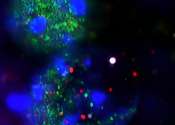How memories form and fade
Why is it that you can remember the name of your childhood best friend that you haven't seen in years yet easily forget the name of a person you just met a moment ago? In other words, why are some memories stable over decades, ...
Aug 23, 2019
0
6169







